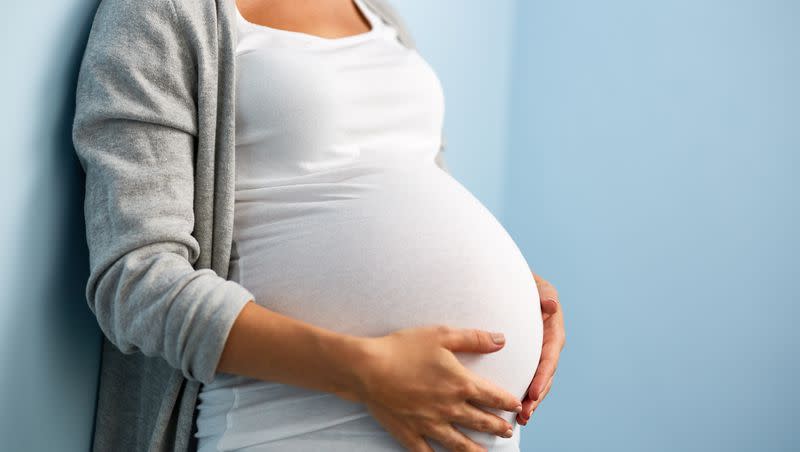Study suggests pregnancy permanently changes a woman’s brain

New research in mice sheds light on how pregnancy rewires the brain to prepare for motherhood. And it suggests the change is permanent.
In the study, published this week in the journal Science, researchers from the Francis Crick Institute in London show that key hormonal changes occur before the birth, switching on maternal behavior. The researchers said they believe the brain may be rewired similarly in humans during pregnancy since the same hormones affect the same part of human brains.
The study shows that the hormones estrogen and progesterone switch on parental behavior in a small population of neurons in the brain during pregnancy, as opposed to during birth, as was previously thought.
The study found that female mice show increased parental behavior in late pregnancy, even without exposure to pups. The two hormones impact nerve cells in the medial preoptic area of the hypothalamus, which is associated with parenting.
“We know that the female body changes during pregnancy to prepare for bringing up young,” Jonny Kohl, group leader of the State-Dependent Neural Processing Laboratory at Crick, said in a written statement. “One example is the production of milk, which starts long before giving birth. Our research shows that such preparations are taking place in the brain, too.”
“While these results were only seen in mice, this hormone-orchestrated remodeling fits nicely with previous observations made in humans,” Newsweek reported, quoting Kohl: “Several studies in recent years have shown that pregnancy leads to volume changes in the human brain that are large enough to be detected using MRI scanners. But it remains unclear whether hormones are behind those changes, too, and whether these larger-scale changes are due to the microscopic changes that we have described.”
Hormonal shift
Background material from the institute said that “brain recordings showed that estrogen simultaneously reduced the baseline activity of these neurons and made them more excitable, whereas progesterone rewired their inputs, by recruiting more synapses (sites of communication between neurons).”
When the researchers changed those neurons so they didn’t respond to the hormones, mice developed no parental behavior during pregnancy — or even after giving birth. “The welfare of the pups was always ensured by the research team during the course of the experiments,” the release said, noting foster mothers were sometimes employed.
Related
Some of the changes lasted for a month or longer, while others seemed permanent, leading the scientists to believe that pregnancy can permanently rewire the female brain.
Virgin mice pay no attention to other females’ pups and focus on mating. But “mothers need to perform robust parental behavior to ensure pup survival,” said Kohl, who said the brain prepares “much earlier for this big life change.”
Per The Guardian, “In humans, hormonal changes are not the only, or even necessarily the primary influence on parenting behavior. But understanding the changes taking place in the brain could provide new insights into the influences on parental bonding and conditions including postpartum depression and psychosis.”
Other scientists react
Professor Robert Froemke, of NYU Langone, who was not involved in the research, told The Guardian, “There is still so much we don’t understand about parenting and hormone signaling in the body and brain — these results are a solid step in that direction. Parenting is among the most complex and difficult set of behaviors we and other animals engage in, and there’s not a lot of room for ‘trial and error’ especially in the earliest days postpartum when infants need a lot of care.”
Related
He said that the hormonal changes seen during pregnancy “prime” parental behavior “so that parental rodents, much like new human parents, can do a good job and be sensitive to their babies as soon as possible.”
Margaret McCarthy, of the University of Maryland, told NPR that it’s hard to sort out the different impact of experience and hormones on parenting. But she noted that hormones could contribute to why some mothers suffer postpartum depression or don’t bond with their baby.
“When mothering fails in humans, it is so harshly judged, and it’s like you’re a failure as a woman. But if there is this hormonal biological contribution to mothering, it can definitely go wrong,” she said.
